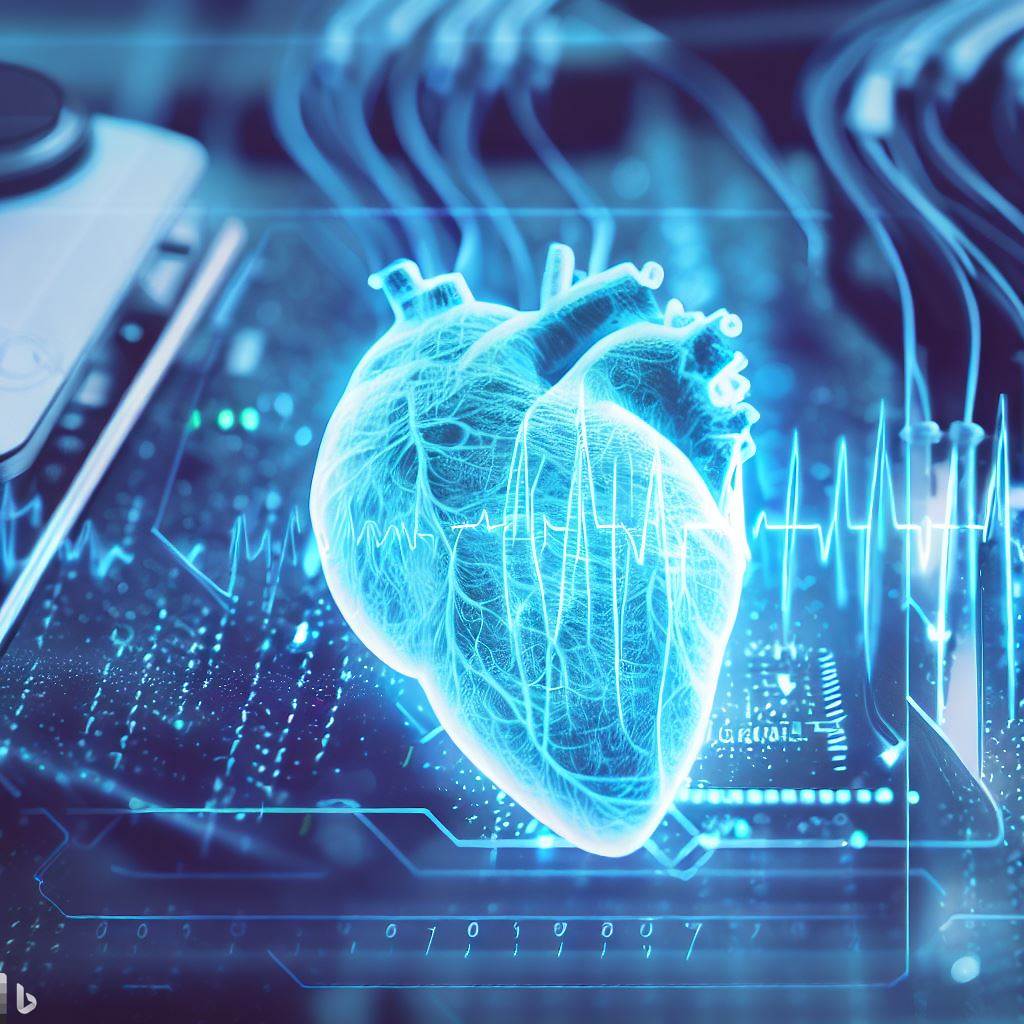Heart attacks remain a significant global health concern, claiming millions of lives annually. However, the advent of artificial intelligence (AI) brings new hope for the early detection and prevention of these life-threatening events. By harnessing the power of AI, healthcare professionals can access valuable insights, improve risk assessment, and implement proactive measures to combat heart attacks. In this blog post, we will delve into the groundbreaking ways AI is revolutionizing cardiovascular care, with a focus on the devices used to aid in prevention.
- Early Detection through Machine Learning:
Early detection plays a pivotal role in preventing heart attacks. Traditional risk assessment models have limitations, relying on static variables such as age, gender, and family history. However, AI, particularly machine learning, enhances risk assessment by analyzing vast amounts of patient data, including medical records, genetic information, lifestyle factors, and even social determinants of health.
To facilitate early detection, AI-powered devices have emerged, such as wearable technologies like smartwatches and fitness trackers. These devices continuously monitor heart rate, physical activity levels, and sleep patterns. Combined with AI algorithms, they can detect subtle changes and patterns that may indicate an increased risk of a heart attack. By providing real-time feedback and alerts to users and healthcare providers, these devices enable timely intervention and preventive measures.
- Personalized Medicine and Treatment Plans:
AI not only aids in risk assessment but also contributes to personalized medicine. By integrating patient-specific data with AI algorithms, healthcare providers can tailor treatment plans to address each individual’s unique risk factors. AI analyzes a patient’s medical history, imaging results, genetic data, and lifestyle factors to determine the most effective interventions and medications.
Implantable devices, such as cardiac monitors, have become invaluable in personalized medicine. These devices continuously monitor heart rhythm and other physiological parameters, transmitting data to AI systems for analysis. The AI algorithms can detect abnormalities, predict potential cardiac events, and alert healthcare providers. This proactive approach allows for timely adjustments to treatment plans, medication dosages, and lifestyle recommendations, significantly reducing the risk of a heart attack.
- Enhanced Diagnostics and Imaging:
AI is revolutionizing the field of medical imaging, enhancing the accuracy and efficiency of cardiovascular diagnostics. Deep learning algorithms can analyze cardiac images, including electrocardiograms (ECGs), echocardiograms, and angiograms, with remarkable precision. By detecting subtle abnormalities or indicators of impending heart attacks, AI assists healthcare professionals in making timely and informed decisions.
Portable and handheld imaging devices equipped with AI capabilities are increasingly being used in clinics and ambulatory settings. These devices offer convenience and allow for real-time imaging and analysis. By bringing diagnostic capabilities closer to patients, AI-powered imaging devices expedite the detection of cardiovascular abnormalities, enabling prompt intervention and prevention of heart attacks.
- Predictive Analytics for Population Health:
AI’s impact on heart attack prevention extends beyond individualized care to population health management. By analyzing vast amounts of anonymized patient data, AI algorithms identify patterns and trends within communities or specific populations. These insights empower healthcare organizations and policymakers to develop targeted preventive strategies, allocate resources efficiently, and implement public health campaigns to address the risk factors contributing to heart attacks.
Large-scale data collection devices, such as remote patient monitoring systems, play a crucial role in predictive analytics for population health. These systems collect data from various sources, including wearable devices, electronic health records, and social determinants of health. AI algorithms analyze this data to identify high-risk populations, predict potential outbreaks or spikes in heart attacks, and guide public health interventions aimed at prevention.
Conclusion:
Artificial intelligence is driving a transformative shift in the prevention of heart attacks. By combining machine learning algorithms with advanced devices, healthcare professionals can detect risks earlier, tailor treatment plans, enhance diagnostic accuracy, and improve population health management. Wearable technologies, implantable devices, portable imaging devices, and remote patient monitoring systems, all empowered by AI, have the potential to revolutionize cardiovascular care and save lives.
As AI technology continues to advance, it is vital to embrace these innovations and collaborate between healthcare professionals, technology developers, and policymakers. By harnessing the power of AI and leveraging the capabilities of these devices, we can move closer to a future where heart attacks are prevented, lives are saved, and individuals can enjoy healthier, happier lives. The path towards AI-powered prevention is a promising one, bringing us closer to a world with reduced cardiovascular morbidity and mortality.











